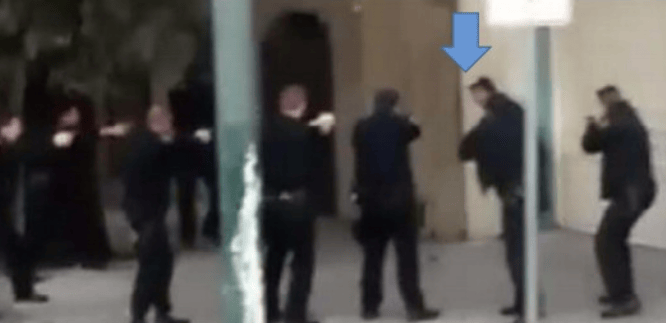
by Valerie Ibarra
San Francisco – The San Francisco public defender’s “CopWatch SF” database is live, making available hundreds of public records about police and sheriffs. What began as a data collection tool for public defenders fighting cases for individual clients has grown into a database accessible to all.
“This database was designed by our Integrity Unit to shine a light on police conduct and encourage greater accountability. Everything included is available publicly, but nowhere else is it consolidated into an easily searchable online resource,” said Mano Raju, public defender of San Francisco. “We believe this is a model that can and should be replicated across the state.”
The CopWatch SF database is now available on the Public Defender’s website sfpublicdefender.org/copwatch and contains a list of local cops with records that have so far been released under the 2019 law SB 1421, plus other publicly available documents like civil lawsuits, news articles and known findings of complaints filed with the Department of Police Accountability.
“It’s been almost two years since the new law took effect and we have received less than 10 percent of what exists. At this rate, it will take 20 years to get records on all current cops.”
SB 1421, authored by Sen. Nancy Skinner, made public police conduct in four categories: shooting a gun at a person, use of force causing great bodily injury, sustained allegations of dishonesty and sustained allegations of sexual assault. In January 2019, the San Francisco Public Defender’s Office requested records on over 2,000 active SFPD officers from agencies including the SFPD, DPA, the District Attorney and the SF Police Commission; the records so far received are in this database.
“It’s been almost two years since the new law took effect and we have received less than 10 percent of what exists. At this rate, it will take 20 years to get records on all current cops,” said Danielle Harris, managing attorney of the Integrity Unit.
“We have worked to make what is available easily accessible to all. The database unfortunately does not tell the full picture because many police records are still shielded from public view under confidentiality laws, because police agencies have no incentive to prioritize the records’ release, and because there has not yet been the political will to create that incentive. Despite these limitations, CopWatch SF is a living database that will grow and expand for all who care about transparency and accountability in policing, including the community at large, activists, journalists, civil rights attorneys and public officials.”
California State Sen. Nancy Skinner attempted to expand those categories this year with SB 776, but the bill did not make it through the legislative cycle.
“I commend the San Francisco Public Defender’s Office for creating this important database and making records on police use of force and serious misconduct available in an easy-to-use format. This tool will make it far easier for the public to obtain records that were made accessible with the passage of SB 1421,” said Sen. Nancy Skinner, D-Berkeley, author of SB 1421.
“Transparency builds trust between the public and police. My office is committed to expanding public access to law enforcement records and to building the trust that public safety in every community relies on.”
“The Public Defender’s Office has radically increased transparency by aggregating public records on officers into one searchable and public database.”
Adriana Camarena, a local community advocate for families whose loved ones have been killed by SFPD officers, has been frustrated by the limited amount of information that families can find. “The Public Defender’s Office has radically increased transparency by aggregating public records on officers into one searchable and public database, but this should and could have been done long ago by the City agencies in charge of these records,” said Camarena.
“We are sitting in the cradle of the information economy with a myriad of solutions available for open government, and the SFPD has failed to provide user-friendly, easily relatable, open data sets that allow the public and media to find the real story behind the data and to support public policy change.”
The Public Defender’s Integrity Unit tracks police officer misconduct and advocates for systemic change; it also assists community members in filing complaints against SFPD and Sheriff’s deputies. “We consider this our duty because our clients’ freedom often depends on systemic accountability and because the community trusts us to stand up for their rights,” said Raju.
Valerie Ibarra, public information officer for the San Francisco Public Defender’s Office, can be reached at Valerie.Ibarra@sfgov.org.





